349 start with E start with E

As southern Lebanon becomes the latest battleground for Islamist warriors, Everyday Jihad plunges us into the sprawling, heavily populated Palestinian refugee camp at Ain al-Helweh, which in the early 1990s became a site for militant Sunni Islamists. A place of refuge for Arabs hunted down in their countries of origin and a recruitment ground for young disenfranchised Palestinians, the camp--where sheikhs began actively recruiting for jihad--situated itself in the global geography of radical Islam.
With pioneering fieldwork, Bernard Rougier documents how Sunni fundamentalists, combining a literal interpretation of sacred texts with a militant interpretation of jihad, took root in this Palestinian milieu. By staying very close to the religious actors, their discourse, perceptions, and means of persuasion, Rougier helps us to understand how radical religious allegiances overcome traditional nationalist sentiment and how jihadist networks grab hold in communities marked by unemployment, poverty, and despair.
With the emergence of Hezbollah, the Shiite political party and guerrilla army, at the forefront of Lebanese and regional politics, relations with the Palestinians will be decisive. The Palestinian camps of Lebanon, whose disarmament is called for by the international community, constitute a contentious arena for a multitude of players: Syria and Iran, Hezbollah and the Palestinian Authority, and Bin Laden and the late Zarqawi. Witnessing everyday jihad in their midst offers readers a rare glimpse into a microcosm of the religious, sectarian, and secular struggles for the political identity of the Middle East today.
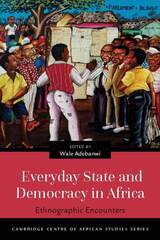
Bottom-up case studies, drawn from the perspective of ordinary Africans’ experiences with state bureaucracies, structures, and services, reveal how citizens and states define each other.
This volume examines contemporary citizens’ everyday encounters with the state and democratic processes in Africa. The contributions reveal the intricate and complex ways in which quotidian activities and experiences—from getting an identification card (genuine or fake) to sourcing black-market commodities to dealing with unreliable waste collection—both (re)produce and (re)constitute the state and democracy. This approach from below lends gravity to the mundane and recognizes the value of conceiving state governance not in terms of its stated promises and aspirations but rather in accordance with how people experience it.
Both new and established scholars based in Africa, Europe, and North America cover a wide range of examples from across the continent, including
- bureaucratic machinery in South Sudan, Nigeria, and Kenya
- infrastructure and shortages in Chad and Nigeria
- disciplinarity, subjectivity, and violence in Rwanda, South Africa, and Nigeria
- the social life of democracy in the Congo, Cameroon, and Mozambique
- education, welfare, and health in Ethiopia, the Democratic Republic of Congo, and Burkina Faso
Everyday State and Democracy in Africa demonstrates that ordinary citizens’ encounters with state agencies and institutions define the meanings, discourses, practices, and significance of democratic life, as well its distressing realities.
Contributors:
- Daniel Agbiboa
- Victoria Bernal
- Jean Comaroff
- John L. Comaroff
- E. Fouksman
- Fred Ikanda
- Lori Leonard
- Rose Løvgren
- Ferenc Dávid Markó
- Ebenezer Obadare
- Rogers Orock
- Justin Pearce
- Katrien Pype
- Edoardo Quaretta
- Jennifer Riggan
- Helle Samuelsen
- Nicholas Rush Smith
- Eric Trovalla
- Ulrika Trovalla
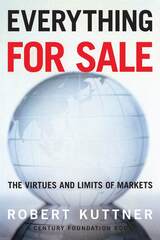
"The best survey of the limits of free markets that we have. . . . A much needed plea for pragmatism: Take from free markets what is good and do not hesitate to recognize what is bad."—Jeff Madrick, Los Angeles Times
"It ought to be compulsory reading for all politicians—fortunately for them and us, it is an elegant read."—The Economist
"Demonstrating an impressive mastery of a vast range of material, Mr. Kuttner lays out the case for the market's insufficiency in field after field: employment, medicine, banking, securities, telecommunications, electric power."—Nicholas Lemann, New York Times Book Review
"A powerful empirical broadside. One by one, he lays on cases where governments have outdone markets, or at least performed well."—Michael Hirsh, Newsweek
"To understand the economic policy debates that will take place in the next few years, you can't do better than to read this book."—Suzanne Garment, Washington Post Book World

How institutional and interpersonal policing have been central to worldmaking
Policing is constitutive of colonial modernity: normalizing, internalizing, and legalizing anti-Black violence as the ongoing condition for white life and freedom. The result, Tia Trafford argues here, is a situation where we cannot practically experience or even imagine worlds free from policing. From the plantation to the prison, global apartheid, and pandemic control, this book examines why and how policing has become the most ingrained, commonsense—and insidious—way of managing our world.
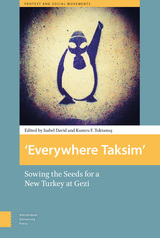

Presented with accounts of genocide and torture, we ask how people could bring themselves to commit such horrendous acts. A searching meditation on our all-too-human capacity for inhumanity, Evil Men confronts atrocity head-on—how it looks and feels, what motivates it, how it can be stopped.
Drawing on firsthand interviews with convicted war criminals from the Second Sino-Japanese War (1937–1945), James Dawes leads us into the frightening territory where soldiers perpetrated some of the worst crimes imaginable: murder, torture, rape, medical experimentation on living subjects. Transcending conventional reporting and commentary, Dawes’s narrative weaves together unforgettable segments from the interviews with consideration of the troubling issues they raise. Telling the personal story of his journey to Japan, Dawes also lays bare the cultural misunderstandings and ethical compromises that at times called the legitimacy of his entire project into question. For this book is not just about the things war criminals do. It is about what it is like, and what it means, to befriend them.
Do our stories of evil deeds make a difference? Can we depict atrocity without sensational curiosity? Anguished and unflinchingly honest, as eloquent as it is raw and painful, Evil Men asks hard questions about the most disturbing capabilities human beings possess, and acknowledges that these questions may have no comforting answers.

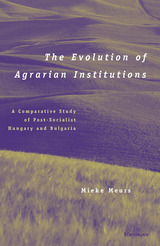
With the collapse of the state socialist regimes in East-Central Europe, it was widely expected that collectivized agriculture would quickly be remade in the glowing image of China--a patchwork of small, privately run farms yielding rapid increases in output and incomes. However, the European experience has been quite different; while socialist collective farms have disappeared, collective forms of organization have persisted, and private farming has been slow to emerge. Meurs argues that an understanding of the causes of the slow emergence of private farming is essential to effective policy intervention in agriculture. This book contributes to such an understanding through analyzing variations in farm organization and rural market development and comparing agricultural restructuring in Hungary and Bulgaria.
The Evolution of Agrarian Institutions is unique in its combination of original survey data, published data on land use, and published historical data. It also tests two institutionalist explanations for the pace and direction of change in agricultural organization. This book will be of interest to economists, political scientists, sociologists, scholars working in the area of rural development in emerging countries, and anyone with an interest in transitional economics.
Mieke Meurs is Associate Professor of Economics, American University.
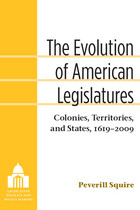
The institutional development of American legislatures, beginning with the first colonial assembly of 1619, has been marked by continuity as well as change. Peverill Squire draws upon a wealth of primary sources to document this institutional history. Beginning with the ways in which colonial assemblies followed the precedents of British institutions, Squire traces the fundamental ways they evolved to become distinct. He next charts the formation of the first state legislatures and the Constitutional Congress, describes the creation of territorial and new state legislatures, and examines the institutionalization of state legislatures in the nineteenth century and their professionalization since 1900.
With his conclusion, Squire discusses the historical trajectory of American legislatures and suggests how they might further develop over the coming decades. While Squire's approach will appeal to historians, his focus on the evolution of rules, procedures, and standing committee systems, as well as member salaries, legislative sessions, staff, and facilities, will be valuable to political scientists and legislative scholars.

The century-long process by which a distinct pattern of Japanese labor relations evolved is traced through the often turbulent interactions of workers, managers, and, at times, government bureaucrats and politicians. The author argues that, although by the 1920s labor relations had reached a stage that foreshadowed postwar development, it was not until the 1940s and 1950s that something closely akin to the contemporary pattern emerged.
The central theme is that the ideas and actions of the workers, whether unionized or not, played a vital role in the shaping of the system. This is the only study in the West that demonstrates how Japanese workers sought to change and to some extent succeeded in changing the structure of factory life. Managerial innovations and the efforts of state bureaucrats to control social change are also examined.
The book is based on extensive archival research and interviewing in Japan, including the use of numerous labor-union publications and the holdings of the prewar elite’s principal organization for the study of social issues, the Kyochokai (“Association for Harmonious Cooperation”)—both collections having only recently been catalogued and opened to scholars. This is an intensive look at past developments that underlie labor relations in today’s Japanese industrial plants.
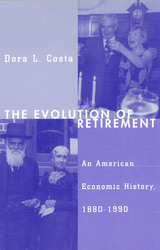

Water quality concerns are not new to the Great Lakes. They emerged early in the 20th century, in 1909, and matured in 1972 and 1978. They remain a prominent part of today’s conflicted politics and advancing industrial growth. The Great Lakes Water Quality Agreement, under the Boundary Waters Treaty of 1909, became a model to the world for environmental management across an international boundary. Evolution of the Great Lakes Water Quality Agreement recounts this historic binational relationship, an agreement intended to protect the fragile Great Lakes.
One strength of the agreement is its flexibility, which includes a requirement for periodic review that allows modification as problems are solved, conditions change, or scientific research reveals new problems. The first progress was made in the 1970s in the area of eutrophication, the process by which lakes gradually age, which normally takes thousands of years to progress, but is accelerated by modern water pollution. The binational agreement led to the successful lowering of phosphorus levels that saved Lake Erie and prevented accelerated eutrophication in the rest of the Great Lakes ecosystem. Another major success at the time was the identification and lowering of the levels of toxic contaminants that cause major threats to human and wildlife health, from accumulating PCBs and other persistent organic pollutants

The People’s Republic of China has experienced numerous challenges and undergone tremendous structural changes over the past four decades. The party-state now faces a fundamental tension in its pursuit of social stability and regime durability. Repressive state strategies enable the Chinese Communist Party to maintain its monopoly on political power, yet the quality of governance and regime legitimacy are enhanced when the state adopts more inclusive modes of engagement with society.
Based on a dynamic typology of state–society relations, this volume adopts an evolutionary framework to examine how the Chinese state relates with non-state actors across several fields of governance. Drawing on original fieldwork, the authors identify areas in which state–society interactions have shifted over time, ranging from more constructive engagement to protracted conflict. This evolutionary approach provides nuanced insight into the circumstances wherein the party-state exerts its coercive power versus engaging in more flexible responses or policy adaptations.
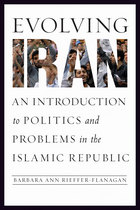
Evolving Iran presents an overview of how the politics and policy decisions in the Islamic Republic of Iran have developed since the 1979 revolution and how they are likely to evolve in the near future. Despite the fact that the revolution ushered in a theocracy, its political system has largely tended to prioritize self-interest and pragmatism over theology and religious values, while continuing to reinvent itself in the face of internal and international threats.
The author also examines the prospects for democratization in Iran. Since the early years of the twentieth century, Iranians have attempted to make their political system more democratic, yet various attempts to produce a system where citizens have a meaningful voice in political decisions have failed. This book argues that greater democratization is unlikely to occur in the short term, especially in light of increased threats from the international community.
This accessible overview of Iran’s political system covers a broad array of subjects, including foreign policy, human rights, women’s struggle for equality, the development and evolution of elections, and the institutions of the political system including the Revolutionary Guards and Assembly of Experts. It will appeal to undergraduates and the general public who seek to understand a country and regime that has mystified Westerners for decades.
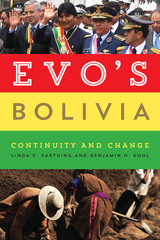
In this compelling and comprehensive look at the rise of Evo Morales and Bolivia’s Movimiento al Socialismo (MAS), Linda Farthing and Benjamin Kohl offer a thoughtful evaluation of the transformations ushered in by the western hemisphere’s first contemporary indigenous president. Accessible to all readers, Evo’s Bolivia not only charts Evo’s rise to power but also offers a history of and context for the MAS revolution’s place in the rising “pink tide” of the political left. Farthing and Kohl examine the many social movements whose agendas have set the political climate in Bolivia and describe the difficult conditions the administration inherited. They evaluate the results of Evo’s policies by examining a variety of measures, including poverty; health care and education reform; natural resources and development; and women’s, indigenous, and minority rights. Weighing the positive with the negative, the authors offer a balanced assessment of the results and shortcomings of the first six years of the Morales administration.
At the heart of this book are the voices of Bolivians themselves. Farthing and Kohl interviewed women and men in government, in social movements, and on the streets throughout the country, and their diverse backgrounds and experiences offer a multidimensional view of the administration and its progress so far. Ultimately the “process of change” Evo promised is exactly that: an ongoing and complicated process, yet an important example of development in a globalized world.



That question is at the heart of Executing Freedom, a powerful, wide-ranging examination of the place of the death penalty in American culture and how it has changed over the years. Drawing on an array of sources, including congressional hearings and campaign speeches, true crime classics like In Cold Blood, and films like Dead Man Walking, Daniel LaChance shows how attitudes toward the death penalty have reflected broader shifts in Americans’ thinking about the relationship between the individual and the state. Emerging from the height of 1970s disillusion, the simplicity and moral power of the death penalty became a potent symbol for many Americans of what government could do—and LaChance argues, fascinatingly, that it’s the very failure of capital punishment to live up to that mythology that could prove its eventual undoing in the United States.

Eighteen distinguished scholars and practicing officials address the problems of executive leadership in the United States, Britain, Canada, and Australia. Individual essays focus on cabinet government; domestic, military, and economic advisers; executive agencies; and personal staff for presidents and prime ministers. Provocative comparisons between and among systems make the discussions particularly insightful.

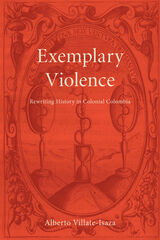


Today, nearly any group or nation with violence in its past has constructed or is planning a memorial museum as a mechanism for confronting past trauma, often together with truth commissions, trials, and/or other symbolic or material reparations. Exhibiting Atrocity documents the emergence of the memorial museum as a new cultural form of commemoration, and analyzes its use in efforts to come to terms with past political violence and to promote democracy and human rights.
Through a global comparative approach, Amy Sodaro uses in-depth case studies of five exemplary memorial museums that commemorate a range of violent pasts and allow for a chronological and global examination of the trend: the U.S. Holocaust Memorial Museum in Washington, DC; the House of Terror in Budapest, Hungary; the Kigali Genocide Memorial Centre in Rwanda; the Museum of Memory and Human Rights in Santiago, Chile; and the National September 11 Memorial Museum in New York. Together, these case studies illustrate the historical emergence and global spread of the memorial museum and show how this new cultural form of commemoration is intended to be used in contemporary societies around the world.
Download open access ebook.
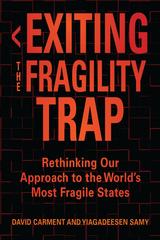
State fragility is a much-debated yet underinvestigated concept in the development and international security worlds. Based on years of research as part of the Country Indicators for Foreign Policy project at Carleton University, Exiting the Fragility Trap marks a major step toward remedying the lack of research into the so-called fragility trap. In examining the nature and dynamics of state transitions in fragile contexts, with a special emphasis on states that are trapped in fragility, David Carment and Yiagadeesen Samy ask three questions: Why do some states remain stuck in a fragility trap? What lessons can we learn from those states that have successfully transitioned from fragility to stability and resilience? And how can third-party interventions support fragile state transitions toward resilience?
Carment and Samy consider fragility’s evolution in three state types: countries that are trapped, countries that move in and out of fragility, and countries that have exited fragility. Large-sample empirical analysis and six comparative case studies—Pakistan and Yemen (trapped countries), Mali and Laos (in-and-out countries), and Bangladesh and Mozambique (exited countries)—drive their investigation, which breaks ground toward a new understanding of why some countries fail to see sustained progress over time.
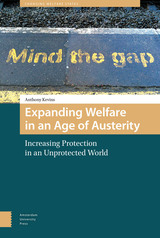

Expedition Escape from the Classroom offers a unique narrative where teaching and its inherent challenges intersect with the intricacies of global politics, history, and identity. While recounting his academic experiment, Löwenheim grapples with the changing landscape of academia in a neoliberal age, while illustrating how personal vulnerabilities can transform into powerful tools for growth, exploration, and enlightenment. Whether you’re an educator, student, or just a curious reader, Expedition Escape from the Classroom promises a journey of reflection, critical thinking, and profound revelations.

Exploring the role of identitarian politics in the privatization of Newark’s public school system
In Expelling Public Schools, John Arena explores the more than two-decade struggle to privatize public schools in Newark, New Jersey—a conflict that is raging in cities across the country—from the vantage point of elites advancing the pro-privatization agenda and their grassroots challengers.
Analyzing the unsuccessful effort of Cory Booker—Newark’s leading pro-privatization activist and mayor—to generate popular support for the agenda, and Booker’s rival and ultimate successor Ras Baraka’s eventual galvanization of the charter movement, Arena argues that Baraka’s black radical politics cloaked a revanchist agenda of privatization.
Expelling Public Schools reveals the political rise of Booker and Baraka, their one-time rivalry and subsequent alliance, and what this particular case study illuminates about contemporary post–civil rights Black politics. Ultimately, Expelling Public Schools is a critique of Black urban regime politics and the way in which antiracist messaging obscures real class divisions, interests, and ideological diversity.



Economic reasoning has thus far dominated the field of public policy analysis. This new introduction to the field posits that policy analysis should have both a broader interdisciplinary base—including criteria from such fields as political science, sociology, law, and philosophy, as well as economics—and also a broader audience in order to foster democratic debate.
To achieve these goals, MacRae and Whittington have organized their textbook around the construction of decision matrices using multiple criteria, exploring the uses of the decision matrix formulation more fully than other texts. They describe how to set up the matrix, fill in cells and combine criteria, and use it as an aid for decision making. They show how ethical assessment of the affects that alternatives have on various parties differs from political analysis, and then they extend the use of the decision matrix to consider alternatives by affected parties, periods of time, or combined factors.
The authors also thoughtfully address the role of expert advice in the policy process, widening the scope of the field to describe a complex system for the creation and use of knowledge in a democracy.
An extended case study of HIV/AIDS policy follows each chapter (in installments), immediately illustrating the application of the material. The book also contains a glossary.
Expert Advice for Policy Choice provides a new basis for graduate education in public policy analysis and can also serve as a text in planning, evaluation research, or public administration. In addition, it will be of interest to students and professionals wishing to aid policy choice who work in such fields as sociology, political science, psychology, public health, and social work.
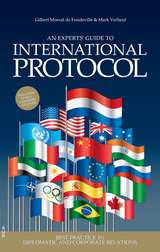
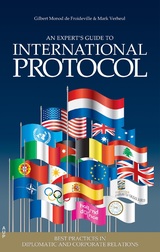
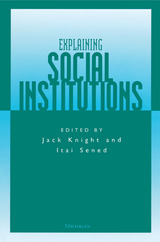
Much of the work being done under the rubric of "new institutionalism" focuses on how institutions shape social, economic, and political outcomes. This emphasis on influence has provided students of economics, political science, and political economy with surprisingly little theory to account for the origins of such institutions. Yet without understanding how institutions form and consequently develop influence, much of the other work lacks context. The contributors fill this void by utilizing a variety of perspectives and theoretical approaches. The twin focus of these articles on the origins of institutions and the development of institutional influence yield innovative and suggestive outcomes. Topics range from the framing of the United States Constitution to debate over the Senate at the Federal Convention; from equilibrium and social institutions to democratic stability.
Contributors include Randall Calvert, Jon Elster, Avner Greif, Jack Knight, Paul Milgrom, Douglass North, William Riker, Norman Schofield, Itai Sened, and Barry Weingast.
Jack Knight is Assistant Professor of Political Science, Washington University, St. Louis. Itai Sened is Assistant Professor of Political Science, Tel Aviv University.
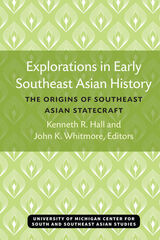

historical evolution as an area of inquiry to the rich and eclectic array of theories, concepts, and methods that mark it as an emerging discipline.
In introductory essays, editors Shanto Iyengar and William J. McGuire identify the points of exchange between the disciplines represented and discuss the issues that make up the subfields of political psychology. Bringing together leading scholars from social psychology and political science, the following sections discuss attitude research (the study of political attitudes and opinions); cognition and information-processing (the relationship between the structures of human information-processing and political and policy preferences); and decision making (how people make decisions about political preferences).
As a comprehensive introduction to a growing field of interdisciplinary concern, Explorations in Political Psychology will prove a useful guide for historians, social psychologists, and political scientists with an interest in individual political behavior.
Contributors. Stephen Ansolabehere, Donald Granberg, Shanto Iyengar, Robert Jervis, Milton Lodge, Roger D. Masters, William J. McGuire, Victor C. Ottati, Samuel L. Popkin, William M. Runyan, David O. Sears, Patrick Stroh, Denis G. Sullivan, Philip E. Tetlock, Robert S. Wyer, Jr.
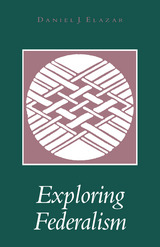

Though not all people are religious believers, religion has played important historic roles in developing political systems, parties, and policies—affecting believers and nonbelievers alike. This is particularly true in the United States, where scholars have devoted considerable attention to a variety of political phenomena at the intersection of religious belief and identity, including social movements, voting behavior, public opinion, and public policy. These outcomes are motivated by “identity boundary-making” among the religiously affiliated. The contributors to this volume examine two main factors that influence religious identity: the communication of religious ideas and the perceptions of people (including elites) in communicating said ideas.
Exploring the Public Effects of Religious Communication on Politics examines an array of religious communication phenomena. These include the media’s role in furthering religious narratives about minority groups, religious strategies that interest groups use to advance their appeal, the variable strength of Islamophobia in cross-national contexts, what qualifies as an “evangelical” identity, and clergy representation of religious and institutional teachings. The volume also provides ways for readers to think about developing new insights into the influence religious communication has on political outcomes.

The contributors discuss the role and function of export control policies from a variety of perspectives—security, commerce, diplomacy, the European region, and that of the newly industrialized countries. Among the topics covered are the problems the United States and the Western export regime will face in the 1990s in light of changing international political alliances and dependencies, in defining strategic exports, in enforcing export controls, and the role of the Coordinating Committee for Multilateral Export Controls.
Contributors. Sumner Benson, Beverly Crawford, Richard t. Cupitt, Dorinda G. Dallmeyer, Paul Freedenberg, Martin J. Hillenbrand, Hanns-Dieter Jacobsen, Bruce W. Jentleson, Kevin J. Lasher, William J. Long, Janne Haaland Matlary, Jere W. Morehead, Henry R. Nau, Han S. Park, Kevin F. F. Quigley, Alen B. Sherr, Christine Westbrook
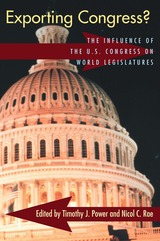
The United States Congress is often viewed as the world's most powerful national legislature. To what extent does it serve as a model for other legislative assemblies around the globe? In Exporting Congress? distinguished scholars of comparative legislatures analyze how Congress has influenced elected assemblies in both advanced and transitional democracies. They reveal the barriers to legislative diffusion, the conditions that favor Congress as a model, and the rival institutional influences on legislative development around the world.
Exporting Congress? examines the conditions for the diffusion, selective imitation, and contingent utility of congressional institutions and practices in Canada, the United Kingdom, Germany, the European Parliament, and the new democracies in Latin America and Eastern Europe. These scholars find that diffusion is highly sensitive to history, geography, and other contextual factors, especially the structure of political institutions and the balance of power between the executive and legislative branches. Editors Timothy Power and Nicol Rae place the volume's empirical findings in theoretical, comparative, and historical perspective, and establish a dialogue between the separate subfields of congressional studies and comparative legislatures through the concept of legislative diffusion.

Religious freedom is widely recognized today as a basic human right, guaranteed by nearly all national constitutions. Exporting Freedom charts the rise of religious freedom as an ideal firmly enshrined in international law and shows how America’s promotion of the cause of individuals worldwide to freely practice their faith advanced its ascent as a global power.
Anna Su traces America’s exportation of religious freedom in various laws and policies enacted over the course of the twentieth century, in diverse locations and under a variety of historical circumstances. Influenced by growing religious tolerance at home and inspired by a belief in the United States’ obligation to protect the persecuted beyond its borders, American officials drafted constitutions as part of military occupations—in the Philippines after the Spanish-American War, in Japan following World War II, and in Iraq after 2003. They also spearheaded efforts to reform the international legal order by pursuing Wilsonian principles in the League of Nations, drafting the United Nations Charter, and signing the Helsinki Accords during the Cold War. The fruits of these labors are evident in the religious freedom provisions in international legal instruments, regional human rights conventions, and national constitutions.
In examining the evolution of religious freedom from an expression of the civilizing impulse to the democratization of states and, finally, through the promotion of human rights, Su offers a new understanding of the significance of religion in international relations.
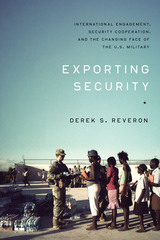
Given U.S. focus on the continuing wars in Iraq and Afghanistan, it is easy to miss that the military does much more than engage in combat. On any given day, military engineers dig wells in East Africa, medical personnel provide vaccinations in Latin America, and special forces mentor militaries in southeast Asia.
To address today's security challenges, the military partners with civilian agencies, NGOs, and the private sector both at home and abroad. By doing so, the United States seeks to improve its international image, strengthen the state sovereignty system by training and equipping partners’ security forces, prevent localized violence from escalating into regional crises, and protect U.S. national security by addressing underlying conditions that inspire and sustain violent extremism.
In Exporting Security, Derek Reveron provides a comprehensive analysis of the shift in U.S. foreign policy from coercive diplomacy to cooperative military engagement, examines how and why the U.S. military is an effective tool of foreign policy, and explores the methods used to reduce security deficits around the world.

Social media compile data on users, retailers mine information on consumers, Internet giants create dossiers of who we know and what we do, and intelligence agencies collect all this plus billions of communications daily. Exploiting our boundless desire to access everything all the time, digital technology is breaking down whatever boundaries still exist between the state, the market, and the private realm. Exposed offers a powerful critique of our new virtual transparence, revealing just how unfree we are becoming and how little we seem to care.
Bernard Harcourt guides us through our new digital landscape, one that makes it so easy for others to monitor, profile, and shape our every desire. We are building what he calls the expository society—a platform for unprecedented levels of exhibition, watching, and influence that is reconfiguring our political relations and reshaping our notions of what it means to be an individual.
We are not scandalized by this. To the contrary: we crave exposure and knowingly surrender our privacy and anonymity in order to tap into social networks and consumer convenience—or we give in ambivalently, despite our reservations. But we have arrived at a moment of reckoning. If we do not wish to be trapped in a steel mesh of wireless digits, we have a responsibility to do whatever we can to resist. Disobedience to a regime that relies on massive data mining can take many forms, from aggressively encrypting personal information to leaking government secrets, but all will require conviction and courage.
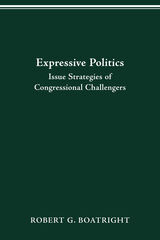
This research makes two types of contributions to existing political science literature. On a theoretical level, it argues for a reconceptualization of the motives of candidates and parties in rational choice analysis. On a practical level, it seeks to enrich our understanding of the role that challengers play in American elections and of the reason why different types of challengers emerge in different types of elections. Boatright argues that the role of challengers in the American electoral process can be understood only if we broaden our theories about rational candidate behavior.

When asked why people obey the law, legal scholars usually give two answers. Law deters illicit activities by specifying sanctions, and it possesses legitimate authority in the eyes of society. Richard McAdams shifts the prism on this familiar question to offer another compelling explanation of how the law creates compliance: through its expressive power to coordinate our behavior and inform our beliefs.
“McAdams’s account is useful, powerful, and—a rarity in legal theory—concrete…McAdams’s treatment reveals important insights into how rational agents reason and interact both with one another and with the law. The Expressive Powers of Law is a valuable contribution to our understanding of these interactions.”
—Harvard Law Review
“McAdams’s analysis widening the perspective of our understanding of why people comply with the law should be welcomed by those interested either in the nature of law, the function of law, or both…McAdams shows how law sometimes works by a power of suggestion. His varied examples are fascinating for their capacity both to demonstrate and to show the limits of law’s expressive power.”
—Patrick McKinley Brennan, Review of Metaphysics
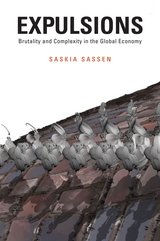
Soaring income inequality and unemployment, expanding populations of the displaced and imprisoned, accelerating destruction of land and water bodies: today’s socioeconomic and environmental dislocations cannot be fully understood in the usual terms of poverty and injustice, according to Saskia Sassen. They are more accurately understood as a type of expulsion—from professional livelihood, from living space, even from the very biosphere that makes life possible.
This hard-headed critique updates our understanding of economics for the twenty-first century, exposing a system with devastating consequences even for those who think they are not vulnerable. From finance to mining, the complex types of knowledge and technology we have come to admire are used too often in ways that produce elementary brutalities. These have evolved into predatory formations—assemblages of knowledge, interests, and outcomes that go beyond a firm’s or an individual’s or a government’s project.
Sassen draws surprising connections to illuminate the systemic logic of these expulsions. The sophisticated knowledge that created today’s financial “instruments” is paralleled by the engineering expertise that enables exploitation of the environment, and by the legal expertise that allows the world’s have-nations to acquire vast stretches of territory from the have-nots. Expulsions lays bare the extent to which the sheer complexity of the global economy makes it hard to trace lines of responsibility for the displacements, evictions, and eradications it produces—and equally hard for those who benefit from the system to feel responsible for its depredations.

An Observer Architecture Book of the Year
Soaring income inequality and unemployment, expanding populations of the displaced and imprisoned, accelerating destruction of land and water bodies: today’s socioeconomic and environmental dislocations cannot be fully understood in the usual terms of poverty and injustice, according to Saskia Sassen. They are more accurately understood as a type of expulsion—from professional livelihood, from living space, even from the very biosphere that makes life possible.
“Saskia Sassen’s Expulsions describes the global forces that make ever more tenuous and fragile most people’s grip on the places where they live.”
—Rowan Moore, The Observer
“Coupled with her earlier work, this may be a paradigm breaking/making work.”
—Michael D. Kennedy, Contemporary Sociology
“Once again, sociologist Sassen uses her considerable knowledge to think creatively at both the local and global levels…In place of the principle of inclusion in the pre-1980s Keynesian era, the planet is increasingly dominated by a principle of exclusion of people, land, natural resources, and water. Sassen presents a powerful conceptual analysis and an equally powerful and timely call to action.”
—M. Oromaner, Choice


Featuring interviews with the members of parliament, journalists, and officials close to the center of the turmoil, An Extraordinary Scandal tells the story of what really happened. Andrew Walker, the tax expert who oversaw the parliamentary expenses system, and Emma Crewe, a social scientist specializing in the institutions of parliament, bring fascinating perspectives—from both inside and outside parliament—to this account. Far from attempting provide a defense of any the parties involved, An Extraordinary Scandal explains how the parliament fell out of step with the electorate and became a victim of its own remote institutional logic, growing to become at odds with an increasingly open, meritocratic society.
Charting the crisis from its 1990s origins—when Westminster began, too slowly, to respond to wider societal changes—to its aftermath in 2010, the authors examine how the scandal aggravated the developing crisis of trust between the British electorate and Westminster politicians that continues to this day. Their in-depth research reveals new insight into how the expenses scandal acted as a glimpse of what was to come, and they reveal where the scandal’s legacy can be traced in the new age of mistrust and outrage, in which politicians are often unfairly vulnerable to being charged in the court of public opinion by those they represent.

From Shortbus to Shame and from Oldboy to Irreversible, film festival premieres regularly make international headlines for their shockingly graphic depictions of sex and violence. Film critics and scholars alike often regard these movies as the work of visionary auteurs, hailing directors like Michael Haneke and Lars von Trier as heirs to a tradition of transgressive art. In this provocative new book, Mattias Frey offers a very different perspective on these films, exposing how they are also calculated products, designed to achieve global notoriety in a competitive marketplace.
READERS
Browse our collection.
PUBLISHERS
See BiblioVault's publisher services.
STUDENT SERVICES
Files for college accessibility offices.
UChicago Accessibility Resources
home | accessibility | search | about | contact us
BiblioVault ® 2001 - 2024
The University of Chicago Press









